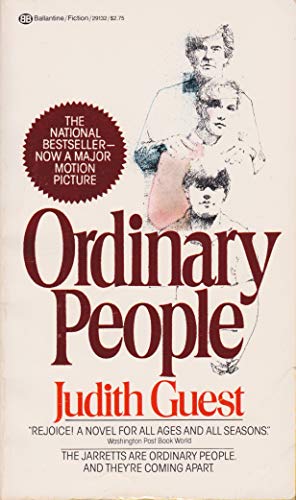
The affection balance in the house is seriously off kilter.

The husband drinks quite a bit and is constantly checking on Conrad, anxious to keep his son intact. She discourages any talk of her son’s suicide attempt and resents the attention her husband lavishes on him. Cal is obsessed with his wife and she comes across a bit as a showpiece until we see her in action. The mother and father enjoy a social prominence and easy lifestyle that would be easy to make two-dimensional, but the author, by and large, avoids this.

But had she shoved it down my throat, I’d also complain. I thought the author relied too much on the reader too supply the back story. We get it all as flashback and aftereffects. It’s interesting how little space is devoted to the accident or the dead brother. Conrad was also in the accident and has survivor’s guilt. We learn surprisingly late in the book that there was another brother, Buck, who died in a boating accident. The book is about the Jarret family (mother: Beth, father: Cal, son: Conrad) and their struggle to survive the aftermath of Conrad’s recent suicide attempt. That’s something in short supply when you’re reading in your room alone. I found myself so embroiled in the family’s drama that I’d find myself muttering, “This mother is a monster!†and look up for confirmation.

This book, thank god, did not represent a literary low in that decade. I read Ordinary People as part of my “I’m only reading novels from the 1970s†research kick. Publication Info: Penguin Group January 30, 1993


 0 kommentar(er)
0 kommentar(er)
